Description
It is indicated for the treatment of hypertension to lower blood pressure. Lowering blood pressure reduces the risk of fatal and nonfatal cardiovascular events, primarily strokes and myocardial infarctions. Management of high blood pressure should be a part of comprehensive cardiovascular risk management, including, as appropriate, diabetes management, lipid control, exercise, smoking cessation, and limited sodium intake. Many patients require more than one medicine to achieve blood pressure goals. For specific advice on goals and management, contact your doctor.
Verapamil can be used as an initial agent in patients with beta-blockers. Diuretics are contraindicated in patients with medical conditions where these drugs frequently cause serious side effects.
Product Description
Calaptin standard release tablets are contraindicated in the following conditions:
— Hypotension or cardiogenic shock
— Patients with known hypersensitivity to hydrochloride
— Severe left ventricular dysfunction
— Sick sinus syndrome
— Second or third-degree AV block
— Concomitant use of Calaptin SR with a diuretic or an angiotensin-converting enzyme (ACE inhibitors) is compatible and has additive blood pressure lowering effects.
Verapamil tablets should not be used concurrently with beta-adrenoreceptor blockers to treat hypertension.
Certain drugs may interact with Verapamil. These include:
— Beta-blockers such as metoprolol, propranolol, and atenolol
— Any other treatment for high blood pressure or arrhythmia (abnormal heartbeat), for example, quinidine, prazosin, disopyramide, hydrochlorothiazide and flecainide.
— Carbamazepine and phenobarbital. Clarithromycin, erythromycin, lithium, digitoxin, digoxin, almotriptan, colchicine, glyburide, etc.
— Certain medications can affect the immune system
— Some anti-cholesterol drugs
— Some HIV- antiviral medications
— Anti-cancer drugs
— Antidepressants
— Non-steroidal anti-inflammatory drugs
— Grapefruit juice
Caution should be exercised when Calaptin SR tablets are administered to elderly patients.
Side Effects
Along with needed effects, a medicine may cause undesired side effects too. Although not everyone who use Calaptin SR experience side effects. If they do occur, they may need immediate medical attention. Side effects reported with the use of Calaptin SR are headache, dizziness, ankle oedema, dyspepsia, sleep disturbance, rash, lethargy, and myalgia. Verapamil’s most serious side effects are hypotension, heart failure, AV block, and rapid ventricular response.
How to Use
Calaptin SR 240 mg is available for oral administration as tablets containing 240 mg of verapamil hydrochloride. The tablets are designed for extended release of the medicine in the gastrointestinal tract. It should be taken once daily at the same time each day. The usual adult dose is 180 to 240 mg per day. Take medicine with food to help it work better. The tablets should not be crushed, chewed, or divided. You do not usually feel any direct benefit from this antihypertensive agent, but it works in the long term to keep you well. Do not discontinue treatment with your doctor’s advice, even if you feel well.


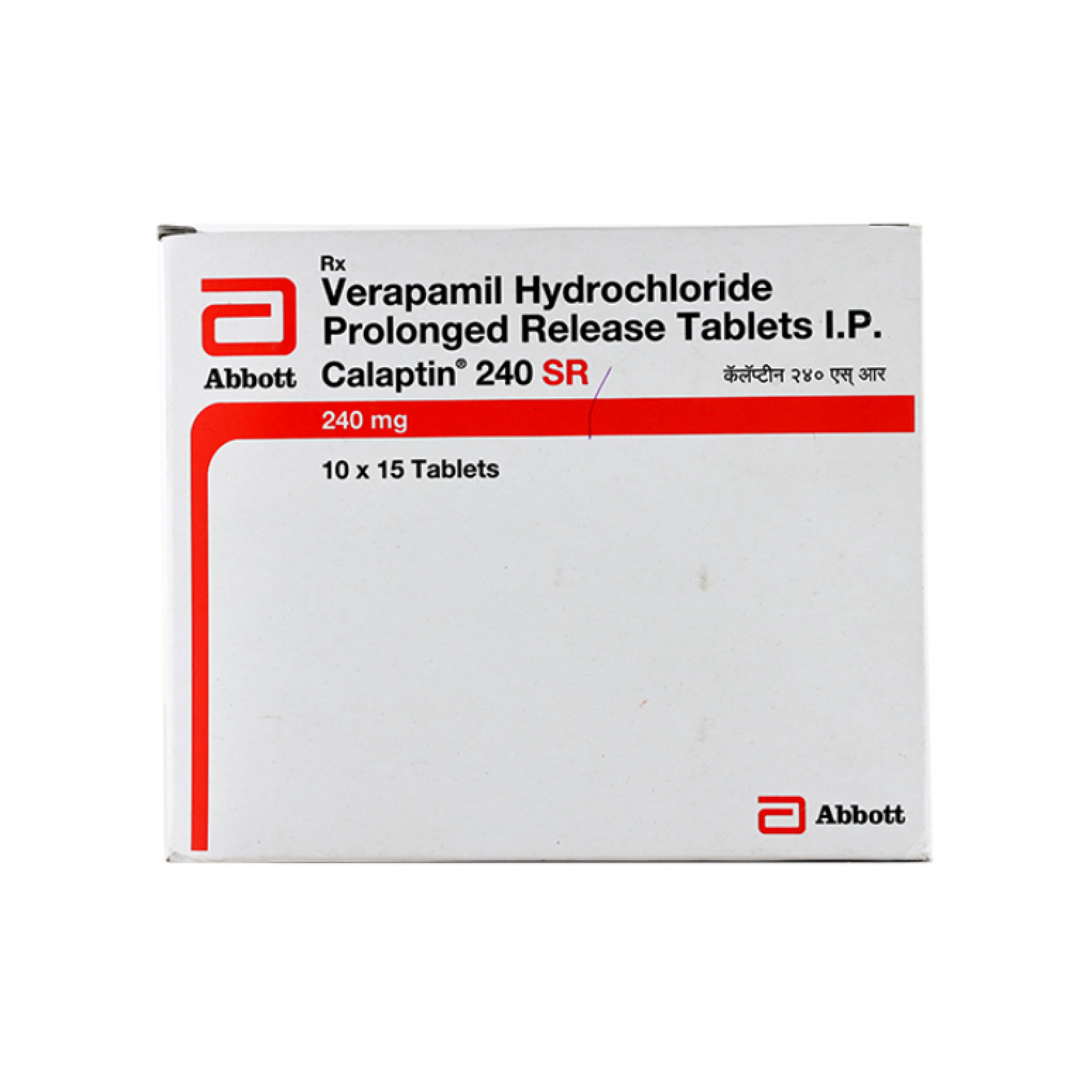
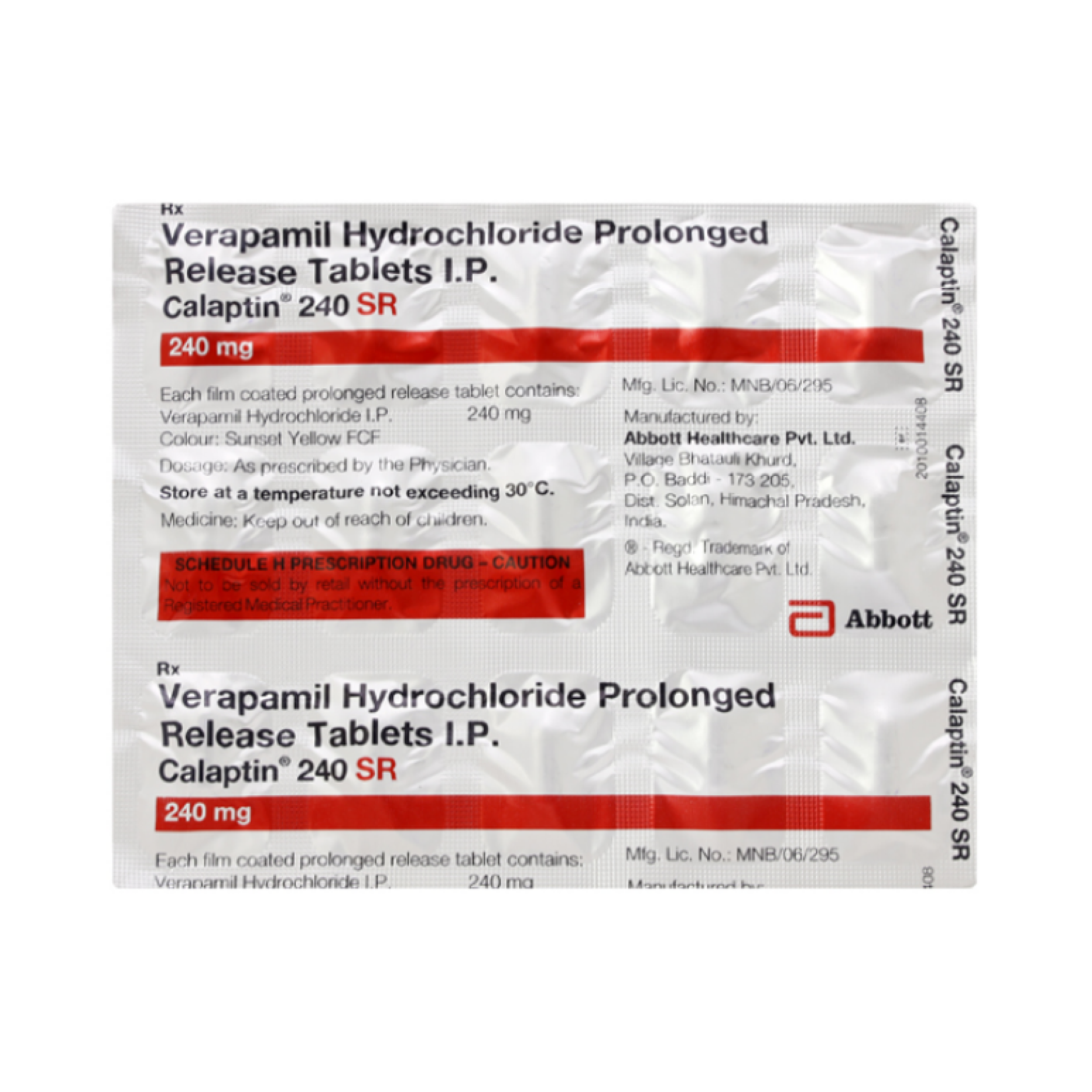
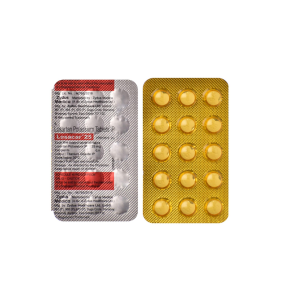
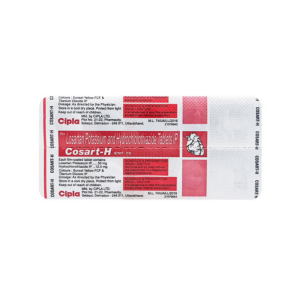
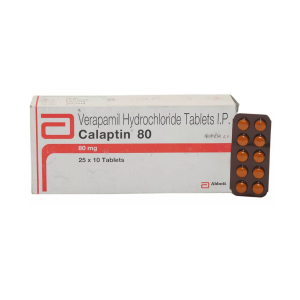
1 review for Calaptin SR 240mg Tablet
There are no reviews yet.